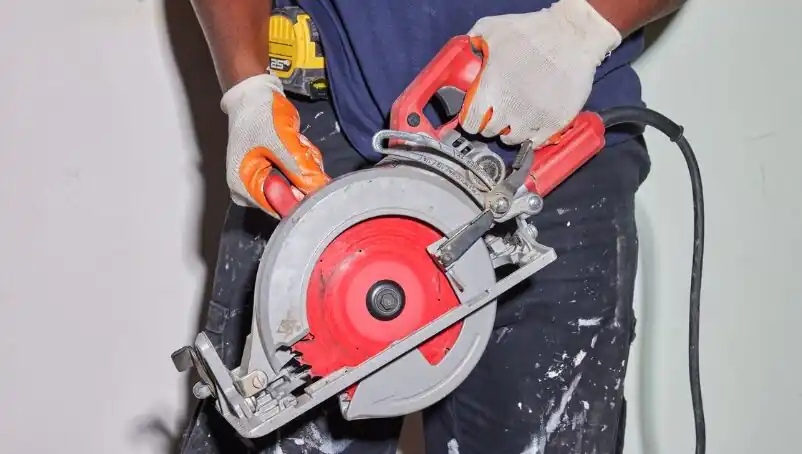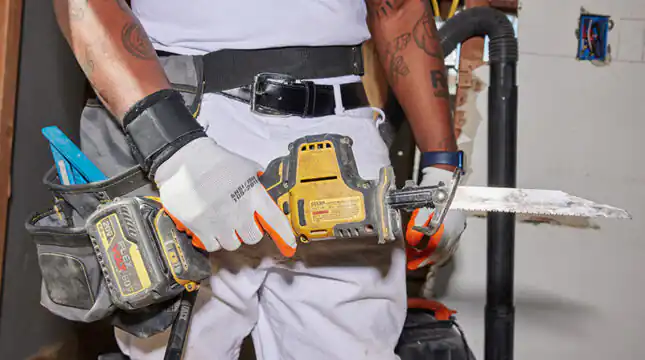As a construction business owner, you need to decide whether you'll rent, lease or purchase the equipment you need for client projects.
In some situations, the answer will be obvious. In others, less so. You probably won’t need to buy your own excavator, but what about smaller equipment like generators and tampers?
To decide which option is right for you, it's important to consider multiple factors, including your operating strategy, the cost, storage requirements, available capital and more.
In this post, we'll look at the pros and cons of each option and how to calculate the true cost of renting vs. leasing vs. buying equipment so that you can make an informed decision.
Pros and cons of renting construction equipment
In most cases, buying all the equipment you could ever need to complete client projects doesn’t make sense. Renting can be a good option for items you use occasionally or don't want to transport from site to site.
Here are some of the pros and cons of equipment rentals.
Pros
- There's no long-term commitment. Renting offers the most flexibility. In general, you can rent construction equipment by the day, week or month, so you only pay for what you need.
- You can take it for a “test drive.” Renting allows you to try out a piece of equipment and decide if it’s right for your business before purchasing it.
- Maintenance is covered. The rental company is responsible for maintenance and repair costs.
- It’s convenient. If a rental breaks down, you'll typically receive a replacement within a day. Just be sure to find out the company's policy on replacements before signing a rental agreement.
- It can help you fill in the gaps. Renting can be a good option if you need extra equipment when you’re swamped with work. It can also be a lifesaver if a piece of equipment you own breaks down and you need a replacement while you repair it.
Cons
- You’ll pay a premium. On a cost-per-day basis, renting is typically more expensive than leasing or buying.
- Availability may be limited. It may be tough to find specialty or popular pieces of equipment when you need them.
- You may face penalties. The rental company may charge a penalty if the equipment is damaged during the rental period.
Pros and cons of leasing construction equipment
If you need equipment for an extended time period — longer than a few days or weeks — but aren't ready to purchase it, leasing could be a good option. Before signing the lease agreement, here are some things to know.
Pros
- There's no down payment. You don't typically have to make a down payment when you lease equipment, which can help preserve capital.
- You may have an option to buy. You may be able to apply part of your monthly payments to the cost of purchasing the equipment at the end of the lease term.
- You get the newest equipment. When leasing, you always have access to the latest models with the newest technology.
Cons
- You're locked in. Unlike rental terms, which may only last a few days, a lease is typically a two to three-year commitment.
- There may be penalties. The leasing company may charge a penalty if there’s excessive wear and tear on the equipment or if you want to end the lease early.
- You’re responsible for maintenance. Just like you have to pay for gas and oil changes when you lease a car, you’re responsible for routine maintenance on leased equipment.
- Insurance. Leased equipment usually costs more to insure than the equipment you own.
What are the pros and cons of buying construction equipment?
Buying a piece of equipment is a significant investment, and it isn't always the right choice. But according to Jason Perez, CEO of YARDZ, if you use it more than 60% of the time, purchasing it may be more cost-effective than renting or leasing.
However, even if your utilization doesn’t reach that benchmark, it could still make sense to buy if you’ll use it consistently for three years or more.
“Maybe you need it sporadically (e.g., once a week) for the next three years. That’s not 60% of the time, but if you calculate the cost, it makes more sense to buy than rent,” Perez said.
Before rushing out to buy your next piece of equipment, it’s important to understand the benefits and drawbacks of ownership.
Pros
- It’s familiar. When you own equipment, you know how well it's maintained. Plus, your employees understand how it operates, generating efficiency among your team.
- Payments may be lower. When you finance your purchase, the monthly payment will typically be much lower than a lease payment.
- You can sell it. When you’re ready for an upgrade or no longer need the equipment, you can resell it to recoup some of your investment.
- It's always available. Because you get to decide how and when to use the equipment, it's easy to respond to scheduling changes at job sites.
Cons
- You typically need to make a down payment. You’ll have to come up with the cash for a down payment, which will tie up capital.
- It costs more than you think. You're not just responsible for the initial purchase price when you buy a piece of equipment. You're also responsible for covering fuel, maintenance, repair and transportation costs.
- You may need a backup. If you own a piece of equipment long enough, downtime will inevitably occur. You may need to rent a replacement until yours is back up and running.
How do you calculate the cost?
Calculating the cost isn’t always as simple as looking at the rental rate, lease amount or loan payment. There are often other things to consider. And assessing the total cost is essential to calculate your contractor overhead and profit margin accurately.
For rentals, you need to include fuel, delivery fees and taxes. If you’re leasing, you must also add routine maintenance. And if you’re thinking about buying, you’ll need to include major repairs, transportation costs and depreciation.
Regardless of your choice, it's important to factor in your total equipment costs when bidding on jobs, plus the price to protect them.
Whether renting, leasing or buying, adequate tools and equipment coverage can protect you if your items are lost, stolen or damaged. (At NEXT, tools and equipment insurance doesn’t cover rentals).
You can calculate the cost to rent vs. lease vs. buy equipment by running the numbers yourself, working with an accountant or using an online calculator like the ones from Cheqroom or Citizens Bank.
Don't forget about the tax implications of your choice. You may be able to deduct part of all of your expenses based on the option you choose. Because tax laws are constantly changing, it's a good idea to consult a professional.
How do you know which option is right for you?
While cost will undoubtedly be a major factor in determining your best option, it’s not the only thing to consider. According to Perez, there’s another factor that may be even more important, and that’s your operational strategy.
Do you want to be responsible for owning equipment? Do you have the network for moving it? Will you bring that function in-house or hire a third party? Will you hire an in-house maintenance team or outsource the maintenance and repair function?
Perez says it’s important to answer those questions and consider the cost implications of your answers when deciding whether to rent, lease or buy.
If you choose to purchase, you're dealing with different types of equipment, manufacturers and parts. "It's a major undertaking," he said.
You have to decide whether you want to deal with it. If you're not prepared, you may be better off renting or leasing — even if it is more expensive.
How NEXT helps construction businesses thrive
At NEXT, we provide affordable coverage for 1,300+ professions, including construction businesses.
Our online application makes it easy to see coverage options, get a quote and purchase insurance.
Choose from general liability, workers’ compensation, professional liability, commercial auto, commercial property and tools and equipment insurance. When you bundle two or more of our policies together, you can save up to 10%.
As soon as your purchase is complete, get proof of insurance when you need it, no waiting around.
Get started with your free online quote today.






